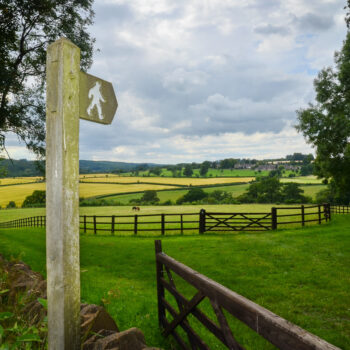The Relationships Education, Relationships and Sex Education and Health Education (England) Regulations 2019, made under sections 34 and 35 of the Children and Social Work Act 2017, make Relationships Education compulsory for all pupils receiving primary education and Relationships and Sex Education (RSE) compulsory for all pupils receiving secondary education.[1][2]
Despite this, young people within the LGBT+ community continue to feel let down by their education providers. This seems to be especially so for those who have multiple protected characteristics.[3]
This case study will look at the challenges faced by LGBT+ students, what inclusivity looks like in RSE, and how inclusive sex education reduces prejudices against the LGBT+ community.
What Challenges do LGBT+ Young People face in School?
Founded in 1964 by reproductive rights trailblazer Helen Brook, Brook is an organisation set on educating young people on how to deal with life’s challenges by changing perceptions and developing skills.
They have delivered education programmes in 36% of English local authorities and have reached over 1.4 million young people through their face-to-face and online services.[3]
Brook recently launched their strategic plan for 2020-2023, which focuses on four key priorities:
Challenging inequality: Young people want a society that recognises their right to healthy relationships and open conversations about sex and sexuality.
Brook champions this and works to challenge stigma, shift attitudes and effect meaningful change.
Increasing accessibility: Brook wants their services, provision and products to be accessible to all young people, including those who may be vulnerable or experiencing disadvantage, discrimination or isolation.
Arming young people with knowledge and awareness helps them to make informed choices and manage their own well-being.
Transforming digitally: They want young people and professionals to access the available services and products in ways that best suit them.
Digital solutions will play a vital role in increasing reach and providing a greater number of effective interventions.
Driving Innovation: Brook is committed to being at the forefront of young people’s evolving needs.
Utilising robust internal data and externally available evidence, they aim to ensure services and products respond to the changing demands of service users and stakeholders.
Nick Dunne, Head of Education at Brook, explains that there are 3 main areas in which LGBT+ young people feel they face challenges within education:

Physical Spaces
The day-to-day experience of navigating a school or other educational setting.

Representation
The reflection and integration of the LGBT+ community within the wider school community, its ethos, policies and practices.

Curriculum Provision
The delivery of RSE and the content of schools’ RSE curriculums.[3]
Existing within a school environment can prove challenging for LGBT+ students as they can be confronted with a range of issues.
This includes a lack of accessible, gender-neutral facilities. Non-cisgender young people are having to use gendered facilities which they do not feel comfortable or safe doing.
There can also be restrictive, gendered uniform policies where young people are prevented from wearing a uniform that supports their gender expression.
Students have also made it clear that when they wish to transition, which involves changing name and potentially pronouns, they are met with opposition from both the school as an institution as well as by peers.
At least 45% of LGBT+ students have faced bullying because of their identity, rising to 64% for trans students.[3]
The experiences of many young people show that schools’ policies, practices, and curriculums are often cisnormative and heteronormative, and there are very rarely any identifiable LGBT+people amongst school staff.
As a result, LGBT+ young people often do not feel comfortable disclosing their gender or sexuality or ‘coming out’ at school and anti-LGBT bullying is not sufficiently challenged.
Brook works closely with thousands of young people and education professionals each year, to improve relationships and sex education (RSE) across the board. Through this work, they have found that:
- Many LGBT+ young people feel that existing RSE is not relevant to them, and does not provide the information they feel they need.
- LGBT+ young people’s questions around RSE have often been dismissed as inappropriate and remained unanswered by their teachers.
- Teachers and other educational professionals have also reported feeling concerned that LGBT+ young people require provision which is different, additional or even separate to their heterosexual and cis-gender peers.
The consequences of these challenges are that young people in the LGBT+ community are turning to other sources of information to fill the gaps they have in their relationships and sex education.[2]
These include:
- TV and Film
- Pornography
- Dating apps
- Social media influencers
- Internet forums
- Search engines
All of these present challenges regarding accuracy, reliability, and overall safety for young people. Particularly regarding adult dating apps, which almost 1 in 5 LGBT+ under 18s have used.
Developing an Inclusive RSE Curriculum
With these challenges in mind, it’s unsurprising that LGBT+ young people are at higher risk of becoming disenfranchised or removed from education altogether.
To help tackle these issues, it’s vital to share best practices from LGBT+ inclusive service providers in the education community to protect the health and wellbeing of all LGBT+ young people.
Brook lay out the key themes for developing LGBT+ inclusive education:
- Taking a proactive, intersectional approach
- Collaborative working with young people
- Quality training for professionals
- Ensuring broad representation
- Providing meaningful support[3]
When planning and delivering an inclusive RSE curriculum, it is crucial to use clear, gender-inclusive language, which includes using gender-neutral terminology where appropriate.
Giving information about all types of sex in an age-appropriate way, that shows sex as a positive and consensual act, rather than something to be hidden away is vital in eradicating stigmas and tackling misinformation.
Including meaningful representation of LGBT+ partnerships in RSE literature, case studies, and examples also helps young people who identify as something other than straight or cisgender to feel included, and educated.
All young people stand to benefit from a more inclusive, broad, and thorough RSE. Multiple studies show that comprehensive sex education reduces teenage pregnancies, and tragic fatalities caused by the complications and stigmas surrounding such instances.[4]
An education that includes LGBT+ representation helps reduce prejudice against the LGBT+ community from an early age. [3]
Brook maintains that all educational settings are capable of being inclusive, safe spaces and they should be supported in doing this as a matter of priority.
[1] Gov.uk. 2019. Relationships Education: Relationships and Sex Education.
[2] Legislation.gov.uk. 2017. Children and Social Work Act 2017.
[3] Dunne, Nick. Head of Education, Brook. 2021. Inclusive Sex and Relationships Education for LGBT+ and LGBT+ SEND Young People.
[4] Bright, Marshall. ACLU. 2008. Study Finds that Comprehensive Sex Education Reduces Teen Pregnancy.
Register FREE to access 2 more articles
We hope you’ve enjoyed your first article on GE Insights. To access 2 more articles for free, register now to join the Government Events community.
(Use discount code CPWR50)




